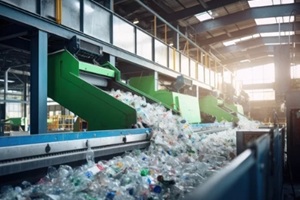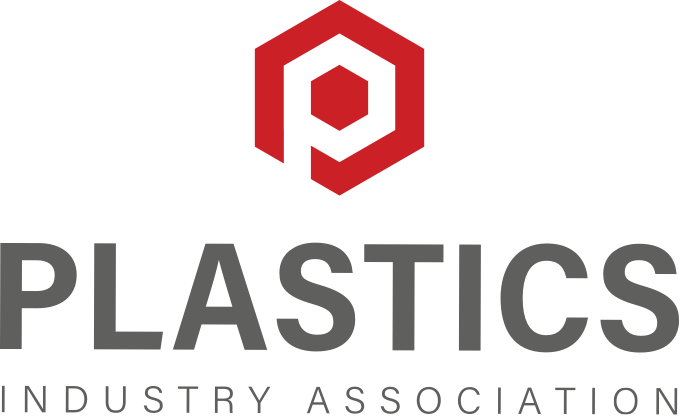January 20, 2025

Artificial Intelligence (AI) is currently transforming the plastics processing industry, offering innovative solutions to longstanding challenges like talent shortages, equipment downtime, and operational inefficiencies. Plastic processors are achieving higher productivity by leveraging AI technologies in their operations.
Highlighting this, we will look at how AI is being deployed to streamline operations for plastic processors, enhancing their overall equipment effectiveness while improving operations, allowing plastic processors to meet rising demands while maintaining high quality and efficiency.
Generative AI is becoming a powerful tool in the plastics processing industry, addressing challenges like talent shortages, rising operational costs, and the need for greater efficiency. Its ability to analyze large datasets allows plastic processors to make data-driven decisions that positively impact productivity and operational costs.
Generative AI creates meaningful content by utilizing large data sets, learning from and analyzing the information contained within them. Unlike traditional AI systems that follow preset rules, generative AI mimics human-like decision-making by continuously learning and adapting from new inputs.
It’s particularly adept at understanding and applying a wide variety of data, including machine operation logs, maintenance records, and even engineering designs. Generative AI offers actionable insights that can help plastic processors address inefficiencies and make strategic improvements to their operations by processing such diverse information.
Generative AI has broad applications in plastics processing, from optimizing machine operation to enhancing product design. For instance, AI can help adjust machine settings to minimize downtime for plastic processors, improving overall equipment effectiveness. In maintenance, predictive algorithms can forecast when a machine part needs replacement, avoiding costly breakdowns.
Generative AI also supports product development by optimizing designs, such as improving the strength-to-weight ratio of components. These applications have already demonstrated significant benefits, including reduced operational costs, enhanced product quality, and streamlined processes across the production line.

Training AI on “tribal knowledge” helps preserve the valuable experiences and expertise of long-term employees, ensuring that this important information remains accessible to future generations. Typically, this includes insights and expertise gained from experience at a floor level that would not otherwise be a part of standard training or operating procedure.
By capturing and disseminating this specialized knowledge, AI provides a strategic advantage, making it easier for teams across the organization to access best practices and learn from past experiences, regardless of shifts or personnel changes.
The process of capturing tribal knowledge involves collecting and digitizing the insights of experienced employees. These individuals share their know-how on everything from troubleshooting equipment to optimizing production methods.
The information gathered is then used to train AI models, effectively creating a repository of operational wisdom that is always available. Doing so makes sure that even when experienced workers retire, their knowledge remains intact, providing a reliable resource for newer or less experienced employees, thereby minimizing disruptions and safeguarding institutional expertise.
AI-powered technical assistants offer significant advantages by providing 24/7 support to your teams. They deliver instant access to essential operational information, which speeds up problem resolution and reduces downtime for plastic processors.
For less experienced employees, these AI assistants can serve as a reliable source of guidance on machine settings, best practices, and troubleshooting.

Stay ahead of the curve in plastic recycling innovation. Join PLASTICS today for access to exclusive resources, industry insights, and the latest advancements to drive sustainability and business growth.
The evolution of AI is poised to transform the plastics processing industry even further, integrating deeply into operational practices and reshaping the workforce. With ongoing technological advancements, AI has the potential to significantly boost the industry’s capabilities, making operations more efficient and responsive while fostering a highly skilled workforce focused on innovation and strategy.
In the coming years, the workforce in plastics processing will increasingly collaborate with AI systems, leveraging their ability to handle repetitive, data-heavy tasks. It will allow human workers to focus on creative problem-solving, strategic planning, and improving processes.
AI will also provide real-time insights, helping workers make informed decisions quickly, which contributes to a more responsive and adaptable production environment. As AI becomes a fundamental tool in the industry, we can expect the emergence of new roles focused on managing, optimizing, and integrating AI solutions, creating opportunities for more advanced technical expertise and continuous learning.

AI is likely to have a transformative impact on the plastics industry going forward, driving productivity, sparking innovation, and driving greater competition. Through complex simulations and the ability to make real-time adjustments to production lines, AI can enhance product development while optimizing your resource use and reducing overall production waste.
Companies that adopt AI early will have an edge, improving their operational efficiency and the quality of their products. However, these advancements also come with challenges—issues like data privacy, ethical use of AI, and potential workforce displacement must be addressed thoughtfully to deliver a balanced integration of AI technologies that benefit both the industry and its workers.
Staying informed about the latest advancements in plastics and AI is essential for staying competitive in this rapidly evolving industry. PLASTICS, the Plastics Industry Association, offers a wealth of resources on global trends, emerging innovations, and best practices that can help you stay ahead. Check out our valuable insights and consider becoming a member today to gain full access to essential tools, expert guidance, and a supportive community that will help you navigate the changing landscape of plastics processing effectively.
PLASTICS and the Future Leaders in Plastics (FLiP) Committee are devoted to supporting and encouraging the next generation of plastics leaders who will play a crucial role in the innovation, technology and future of the plastics industry. FLiP’s mission is to provide young professionals under the age of 40 the exposure, education and resources they need to build lifelong careers in plastics. Want to join? Want to get your employees involved? Email: flip@plasticsindustry.org